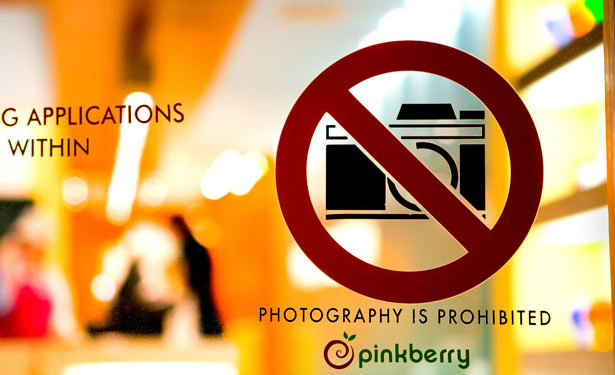Kuwait enforces DSLR ban
On the streets, in public places and in Kuwait's stores, it is now forbidden to use digital SLR cameras for citizens who do not have a journalist’s ID. This decision was made jointly by the Ministry of Information, the Ministry of Social Security and the Ministry of Finance. As the expats living there write, Kuwaiti society is very conservative and this decision is supported by the majority of the population .

It would seem that every nation has the right to live according to its own laws in its own country. But what is interesting here is that almost half of Kuwait's population is made up of foreign nationals. According to CIA statistics , the country has approximately 2.8 million inhabitants, including 1.3 million foreigners (as of July 2010).
According to Wikipedia, 45% of the country's population are indigenous Kuwaitis who have been able to prove their Kuwaiti genealogical roots since 1920. The power belongs to them.
At the same time, the share of foreigners among the workforce is 60%. In fact, it is foreigners who ensure the welfare of the Kuwaiti population by extracting oil for them, developing infrastructure and working in the services sector (50% of the country's economy). Not least thanks to them, Kuwait is now one of the richest countries, where per capita GDP is $ 52,800 a year, 8th in the world.
But it seems that the local population is dissatisfied with the “migrant workers” who arrived, including their “wild morals,” for example, taking pictures of everything around.
Formally, small digital cameras, film SLRs and cameras built into the smartphone are not prohibited. But taking pictures with a small camera or film SLR, and then trying to explain to an angry cop the difference between a DSLR and a non-DSLR, is unlikely to be a good idea.
It is not entirely clear why DSLR was banned, and not all other cameras. Perhaps this rule is similar to the ban on "automatic weapons" in the United States, where at the same time possession of pistols and rifles is allowed. That is, machines (DSLR) just look too intimidating in their functionality.
Although the ban is supported by a conservative majority, foreigners and local youth are against it. The press asks the question: what should people do now with their cameras if using them is prohibited almost everywhere?

It would seem that every nation has the right to live according to its own laws in its own country. But what is interesting here is that almost half of Kuwait's population is made up of foreign nationals. According to CIA statistics , the country has approximately 2.8 million inhabitants, including 1.3 million foreigners (as of July 2010).
According to Wikipedia, 45% of the country's population are indigenous Kuwaitis who have been able to prove their Kuwaiti genealogical roots since 1920. The power belongs to them.
At the same time, the share of foreigners among the workforce is 60%. In fact, it is foreigners who ensure the welfare of the Kuwaiti population by extracting oil for them, developing infrastructure and working in the services sector (50% of the country's economy). Not least thanks to them, Kuwait is now one of the richest countries, where per capita GDP is $ 52,800 a year, 8th in the world.
But it seems that the local population is dissatisfied with the “migrant workers” who arrived, including their “wild morals,” for example, taking pictures of everything around.
Formally, small digital cameras, film SLRs and cameras built into the smartphone are not prohibited. But taking pictures with a small camera or film SLR, and then trying to explain to an angry cop the difference between a DSLR and a non-DSLR, is unlikely to be a good idea.
It is not entirely clear why DSLR was banned, and not all other cameras. Perhaps this rule is similar to the ban on "automatic weapons" in the United States, where at the same time possession of pistols and rifles is allowed. That is, machines (DSLR) just look too intimidating in their functionality.
Although the ban is supported by a conservative majority, foreigners and local youth are against it. The press asks the question: what should people do now with their cameras if using them is prohibited almost everywhere?
